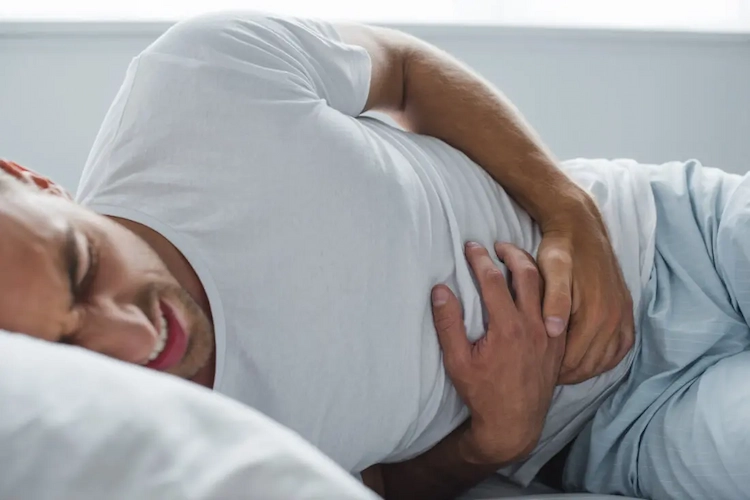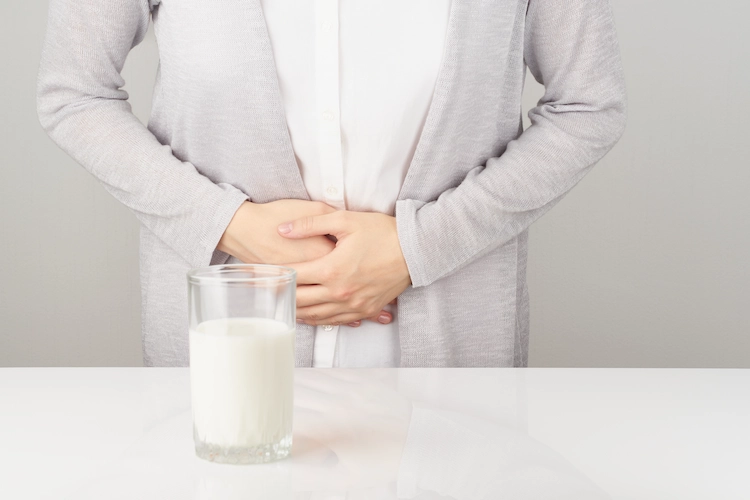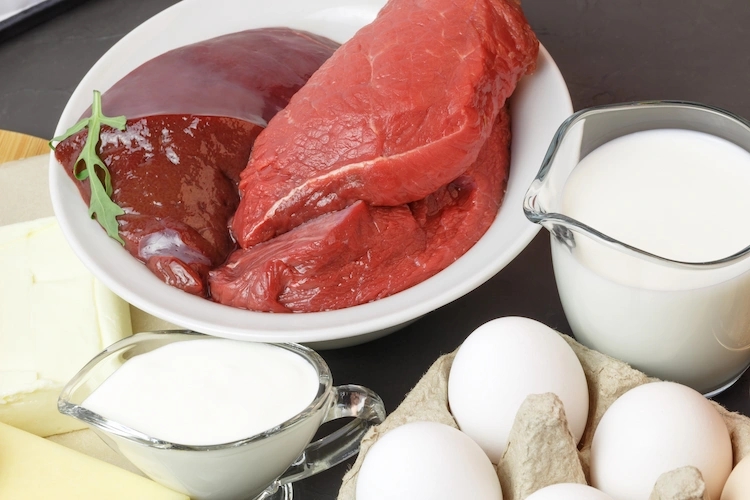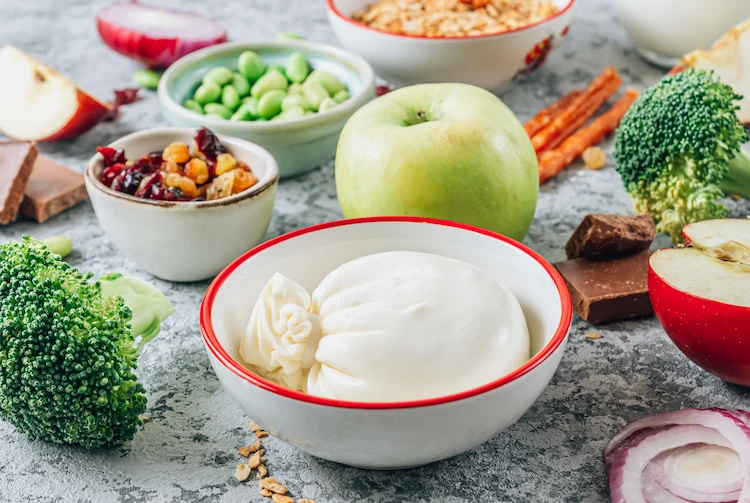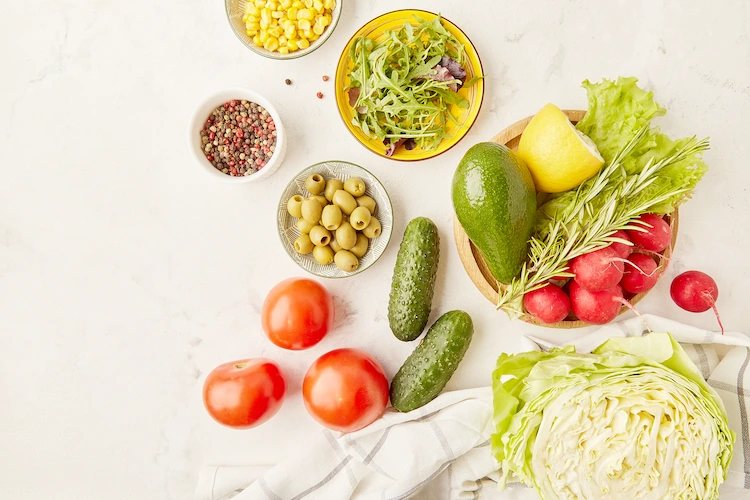Could increased production of intestinal gases indicate more serious problems like indigestion and how to get rid of bloating? Find out below why bloating causes unpleasant symptoms and how you can relieve them with home remedies, diet or exercise!
Although bloating often causes discomfort, it is not dangerous in itself, but what are the steps to take to get rid of bloating? It is important to first identify the possible causes and then take the necessary steps. If you have an inability to release and your stomach is bloating, it is usually due to an accumulation of gases, solids and fluids in the intestines. This tightens the abdominal muscles, which could cause discomfort such as abdominal pain. It’s usually a normal condition, but in some people it causes bothersome symptoms. In such cases, could these be signs of more serious health problems and what is the best way to deal with them? Here is some useful information and health tips that can help you.
How to Identify the Reasons and Get Rid of Bloating?
Normally, one can successfully expel intestinal gases from the body through both openings of the digestive system. Scientific reports show that the average adult produces between 1 to 4 pints/0.5 to 2 liters of it daily and vents it as intestinal gas about 14 times a day. In medical literature, the gas mixture in the abdomen is also known as flatus. It is caused by external or internal factors such as rapid ingestion of food, poor eating habits, talking while eating or by intestinal bacteria during digestion. Accordingly, the amount of air ingested, the type and frequency of food intake, or intestinal motility could also lead to increased gas formation. All of these factors can be further aggravated by food, medication, and last but not least, stress.
Although the passage of intestinal gases is asymptomatic in most cases, common symptoms also occur. These usually manifest themselves in the form of increased burping or bloating in the abdomen, which is known in medicine as flatulence. In addition, the accumulation of gases in the intestines often leads to expansion, which can accelerate intestinal contractions and peristalsis. This, in turn, can cause conditions such as irritable bowel syndrome, spasms in the gut muscles, and abdominal pain. Excessive swallowing of air, known as aerophagia, is a symptom most commonly associated with fast eating. However, this could also happen because of chewing gum, consuming hot drinks, smoking, ill-fitting dentures, and problems in the nasopharynx.
What Causes Excessive Gas Buildup in the Abdomen?
According to gastroenterologists, people should get to the bottom of the causes so that you can get rid of bloating quickly. In addition to the external factors described above, digestive problems are also among the most common causes. These are largely due to intolerance to certain foods. The most typical of these include lactose intolerance or gluten intolerance, although people may have other food intolerances as well. In addition, excessive gas formation occurs when undigested food is fermented by bacteria in the digestive tract, particularly the colon. Usually, this refers to a lack or absence of enzymes needed to break down the carbohydrates.
What Types of Sugar Cause Bloating?
- Lactose is a simple sugar that is mostly found in non-fermented or immature dairy products such as cheese or cream. When eating such products, bloating usually indicates lactose intolerance.
- Raffinose is a more complex type of sugar. It is mainly found in legumes and cereals, but also in vegetables such as broccoli, white cabbage, Brussels sprouts and asparagus.
- As for fructose, this is a simple sugar found in fruit, but it’s also found in vegetables like onions and artichokes, as well as wheat. However, in the form of glucose-fructose syrup, fructose is also used to sweeten soft drinks. A bloated belly after eating such foods is a symptom of fructose malabsorption or fructose intolerance.
- Sorbitol is a sugar alcohol found naturally in some fruits such as apples, pears, peaches and plums. It is also used as a low-calorie sweetener in the manufacture of confectionery. Similar sweeteners that would require you to get rid of bloating are mannitol and xylitol. Such sorbitol derivatives can be recognized by the suffix -itol in foods.
- Starchy foods like corn, potatoes, and pasta can also cause increased gas formation in the colon. A common alternative is rice, which is starchy but most people tolerate it well.
- When it comes to soluble fiber as another disruptive factor, it takes on a soft, jelly-like consistency and ferments in the colon. Potential sources include legumes such as peas and beans, as well as fruit and oat bran. Insoluble fiber, on the other hand, passes through the digestive system virtually unchanged, but excess intake leads to bloating and intestinal discomfort.
However, excessive gas formation is not only due to a predominantly carbohydrate diet. Fatty foods and alcohol also often have a negative effect on the gastrointestinal tract and cause bloating. They can also lead to delayed gastric emptying, which in turn could make you want to get rid of bloating.
How Does Potassium and Sodium Imbalance Affect the Intestines?
Another possible cause for bloated stomach is the increased salt intake. When you eat too much salty foods or high-sodium foods, this leads to imbalances in the body. In addition, when the daily sodium intake is exceeded, the body begins to store more water. This happens mainly in the subcutaneous layer, which can also cause bloating. If you need to get rid of bloating because of this, you should check whether your skin feels softer and thicker. The recommended sodium intake per day should not exceed 1,500 mg for children and 3000 mg for adults.
On the other hand, sodium works closely with potassium in the body, with these electrolytes regulating a number of processes. These include fluid balance and fluid transport, but the combination of high sodium and low potassium causes water retention and bloating. Therefore, you should pay attention not only to sodium intake, but also to adequate potassium-rich diet. The recommended daily amount of potassium is about 5000 mg, although unlike sodium, it is not as easy to get it from food. Good sources of potassium are bananas, pumpkins, salmon, avocados, and mushrooms.
What Can You Do to Get Rid of Bloating?
Having in mind the influencing factors described above, the solution could actually lie in the problem itself. Accordingly, if one is familiar with the causes, certain lifestyle changes and measures can be taken that could prevent such symptoms. Factors such as hormonal problems during pregnancy or menstruation, accompanying conditions such as constipation, consumption of processed foods or stress can also lead to bloating. Therefore, it would make sense to take the right steps in the appropriate situation. Here are some self-treatment steps you could take.
- Take Medication – By relying on diuretics to get rid of bloating, you enable one of the simpler problem solutions. Such so-called antispasmodics can, for example, relax the intestinal muscles if you want to get rid of a bloated stomach overnight. However, such drugs also have side effects, which could make them beneficial or detrimental in individual cases. For this reason, you should consult a doctor before resorting to these medications.
- Since stress is the cause of high cortisol levels and consequent bloating, you should monitor your stress levels in everyday life to stay within normal limits.
- Staying hydrated is important if you have digestive issues like constipation that also causes bloating. Otherwise, fiber can also help, but excessive intake would further aggravate the situation.
- Taking probiotics and prokinetics as dietary supplements would be an equally effective attempt at self-treatment. Probiotic cultures are live bacteria that help balance the gut bacteria. These can be found in fermented foods like pickled cabbage, although they should be avoided if they cause you bloating. As for prokinetics, these are medications that help move food through the digestive tract faster. However, age, health status and other aspects such as availability must be taken into account.
How to Use Home Remedies and Alternative Methods to Get Rid of Bloating?
Once you have identified the triggers for bloating, you can also add some home remedies to meet your dietary changes. This can be done in a variety of ways, depending on eating habits, health, and preference. You can either use some natural products that have beneficial effects, or you can exercise more and try certain exercises for relief. If your case isn’t serious or isn’t due to an underlying medical problem, you can try to help yourself by trying the following remedies, lifestyle changes, and activities:
- If you drink tea to get rid of bloating – Consider drinking peristalsis-soothing teas like chamomile, mint, or matcha daily if you have intestinal discomfort.
- Use herbs like clove in cooking – The effect of clove oil can also help you reduce bloating by promoting the production of digestive enzymes. In addition, fresh herbs such as parsley and coriander contribute to better digestion.
- Avoid chewing gum – By chewing less of such products, you will not inhale excess air. This can also help you quit smoking and reduce alcohol consumption.
- Prevent Yeast Infections – The development of candida or other unwanted yeast fungi can be prevented in some cases by dietary supplements, essential oils, homeopathy, etc. This step should not be taken until you have had a detailed analysis of your intestinal microbiome with stool diagnostics.
- To get rid of bloating, consider exercise and physical activity – Support the functioning of your digestive tract by moving more and exercising more. A sedentary lifestyle is one of the factors that have a negative effect on peristalsis and thus promote bloating.
- FODMAP diet – Both fructose and lactose intolerance are part of the so-called FODMAP intolerance. Speak to a dietician about an appropriate diet plan to help relieve symptoms such as bloating and abdominal discomfort when eating certain foods.
Read also: What to Eat When You Have a Stomach Ache and What Foods to Avoid?
Exercises against Bloating
In addition to walking, yoga or dancing, which improve blood circulation and intestinal patency, certain movements also help. This is one of the best and most effective methods for various ailments, including bloating and abdominal discomfort. So if you are constipated, have a bloated stomach or otherwise develop annoying flatulence that leads to cramps, you can try to solve the problem with the following exercise.
- First, lie on your back and bend your knees near your stomach.
- Then use your hands to press your knees against your body and hold them for a few seconds.
- First, move your bent knees to the side and spread your arms so that they form a T-shape with your body.
- Now turn your head in the opposite direction of your knees and hold this position for a few seconds.
- After that, in the same way, repeat the pressed position turning to the other side.


